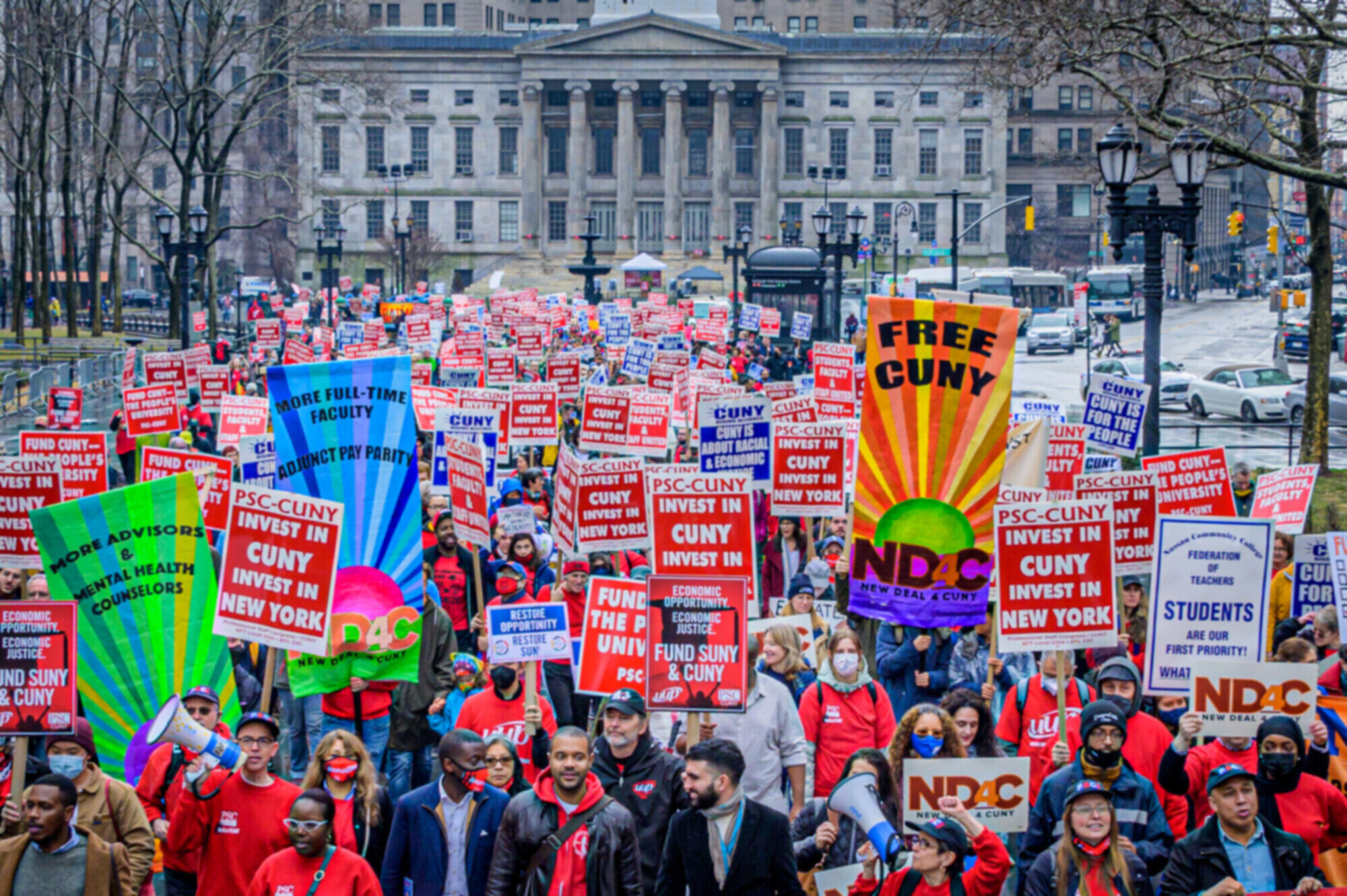If you are a public employee in New York, you might have read that something called the Triborough Amendment has to be repealed because it gives you and your union too much power.
Don’t believe it.
The truth is that Triborough, a part of New York State labor law, has leveled the bargaining playing field and stops public employers from slashing your salary and benefits – including crucial health care benefits – while your union is negotiating for a new contract.
New York’s Constitution provides that human labor is not a commodity and that working people have the right to join unions and collectively bargain. For the public sector, bargaining rights are defined by the 1967 Taylor Law (Civil Service Law Article 14).
Under the Taylor Law, unions are prohibited from striking, the traditional weapon of last resort used by labor to pressure management. Management, in turn, is prohibited from reducing or eliminating contract rights or benefits while the parties negotiate for a successor agreement.
To shift the current balance in management’s favor would encourage employers to delay or avoid bargaining in order to make unilateral changes to contracts.
In its 1972 Triborough Bridge & Tunnel Authority decision, the Public Employee Relations Board (PERB) interpreted the Taylor Law to prohibit employers from changing terms and conditions of employment while a successor agreement was being negotiated. This principle became known as the Triborough Doctrine.
PROTECTIONS
The doctrine, however, did not protect all contract provisions, only those dealing with mandatory subjects of bargaining, such as salary and hours. Movement within salary schedules and implementation of increments were excluded. Further, when a contract expired, public employers were free to alter contract provisions on permissive subjects of bargaining, such as retiree benefits, class size and staffing levels, among others.
Binding arbitration provisions also lapsed when the contract expired. This meant that once the contract expired, the union was still powerless to strike, but the employer could diminish or discontinue important contract benefits at will.
To address this imbalance, the legislature in 1982 enacted the Triborough Amendment, which had strong support from labor and management. The governor’s office, in fact, issued a supporting memo, noting the amendment would guarantee that labor and management came to the table as equals.
The amendment expanded the Triborough Doctrine by making it an improper practice for an employer “to refuse to continue all the terms of an expired agreement until a new agreement is negotiated,” unless the union violated the no-strike provision. This meant that all provisions of the contract, except those specifically intended by the parties to sunset on a certain date, would continue until a successor agreement was negotiated – unless, of course, the union engaged in a strike.
Before Triborough, the number of public sector labor strikes in New York peaked at 28 annually. In the years following the amendment, no more than four strikes have taken place in any given year, and there have been many years with no strikes at all.
Further, Triborough ended the practice of overreaching by public employers who, without the amendment, could and would threaten unions and working women and men with loss of crucial contract benefits in order to get negotiating concessions.
NO TO REPEAL
Repeal of the Triborough Amendment would have a chilling effect on public sector labor relations. Public employers would regain the power to eliminate or diminish important contract provisions while negotiating a new contract. They would have an incentive to delay negotiations past the contract’s expiration date so they could alter your contract unilaterally.
This kind of unilateral power could have a devastating effect on New York’s public sector labor relations and on your contract rights – rights that we have fought for. New York State United Teachers (NYSUT) will oppose any Triborough repeal.
Richard Casagrande is the General Counsel of New York State United Teachers and Deborah Milham is Senior Counsel. A full version of this article was published in the February 18 issue of NYSUT United.

